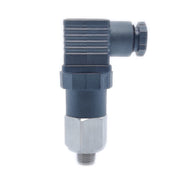Arduino is indeed used in various industries. While Arduino is popularly known for its use in educational settings and hobbyist projects, its versatility and ease of use have also made it relevant in professional and industrial applications.
In prototyping and product development, Arduino boards are often employed to quickly create proof-of-concept models and test ideas before moving on to more specialized and customized hardware solutions. Arduino's extensive community and libraries make it easier for developers to find and adapt existing code and resources to their specific needs.
Additionally, Arduino's open-source nature allows for modifications and customizations, making it suitable for creating custom industrial control systems, automation solutions, data logging applications, and more. Arduino boards can be integrated into larger systems or used as standalone controllers, depending on the requirements of the project.
Many companies and industries utilize Arduino-based solutions for tasks such as monitoring and control, sensor interfacing, robotics, Internet of Things (IoT) applications, and rapid prototyping. Moreover, Arduino's compatibility with various sensors, actuators, and communication modules further enhances its applicability in industrial settings.
Overall, while Arduino may not be the primary choice for large-scale industrial applications, it is widely utilized as a versatile tool for prototyping, testing, and developing solutions in numerous industries.



Leave a comment